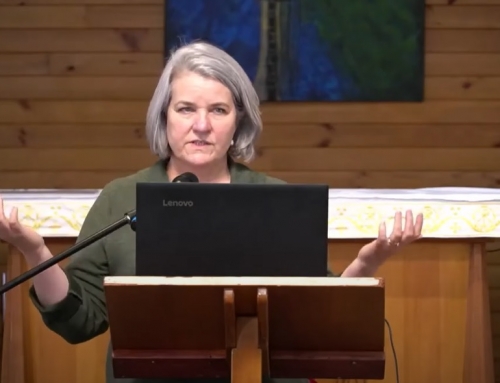There has been lots of media coverage regarding Pope Francis’ phone call to a South American woman in a second marriage. Typical of the secular media, many of the reported details are misrepresented and speculation that the pope is about to ‘allow’ divorce is wildly exaggerated and misleading. No doubt the pastoral needs of divorced and remarried Catholics will be a topic in the forthcoming Extraordinary Synod and there will be many dimensions of the issue examined. We include below excerpts from a number of articles related to the topic.
The Phone Call…as reported by the Telegraph
Pope Francis ‘tells sinner she should be allowed Communion’
In apparent break from Catholic teaching, Pope is said to have phoned remarried Argentine Jacqui Lisbona to say ‘nothing wrong’ in her taking Holy Communion
By Nick Squires, Vatican City | Telegraph | Full article: here
Pope Francis reportedly told a woman “living in sin” with a divorced man that she is free to take Holy Communion, in what appears to be a significant departure from Catholic teaching.
Jacqui Lisbona, who is from the Pope’s homeland of Argentina, wrote to the Jesuit pontiff to tell him that she had been refused Communion by her local priest, who objected to the fact that she was married to a previously divorced man.
Prohibited from marrying in church, they had instead opted for a civil ceremony.
“[The priest] told me that every time I went home, I was going back to living in sin,” she said.
In her letter, Mrs Lisbona, who has two teenage daughters with her current husband after 19 years of marriage, said she was worried that if she did take Communion – perhaps in a church where she was not known to the priest – she would be “violating Church rules”.
The Pope, who since being elected 13 months ago has established a reputation for phoning ordinary Catholics out of the blue in response to letters they have sent, called her at her home in the central region of Santa Fe on Easter Monday.
He reportedly told her: “A divorcee who takes communion is not doing anything wrong.”
…
The surprising exchange was first revealed by Mrs Lisbona’s husband, Julio Sabetta, who said he first answered the call from the Pope, before handing the phone to his wife.
…
“It is an issue we are discussing in the Vatican, because a divorcee who takes communion is not doing anything wrong,” the Pope reportedly said during a conversation lasting 10 minutes.
The Catholic Church currently maintains that unless a first marriage is annulled, Catholics who remarry cannot receive Communion because they are essentially living in sin and committing adultery.
Such annulments are often impossible to obtain, or can take years to process, a problem that has left many Catholics feeling rejected by the Church.
Since being elected in March last year, Pope Francis has on several occasions called for a more merciful approach to the problem.
In February he said divorced and separated couples should not be excluded from Church activities, in remarks which also raised speculation that he may one day lift the ban on divorcees receiving Communion.
The Official Vatican Response to Media reports
Vatican Statement on Pope’s Phone Call to Woman in Argentina
Fr. Lombardi Says Media Amplification Cannot be Confirmed as Reliable
Vatican City, April 24, 2014 (Zenit.org) | Full Article: here
Vatican Press Office Director Father Federico Lombardi issued the following statement this morning concerning Pope Francis’ recent telephone call to a woman in Argentina who some press reports said was divorced and remarried. The reports suggested the Holy Father told her she could receive Holy Communion.
Statement from the Director of the Holy See Press Office
Several telephone calls have taken place in the context of Pope Francis’ personal pastoral relationships.
Since they do not in any way form part of the Pope’s public activities, no information or comments are to be expected from the Holy See Press Office.
That which has been communicated in relation to this matter, outside the scope of personal relationships, and the consequent media amplification, cannot be confirmed as reliable, and is a source of misunderstanding and confusion.
Therefore, consequences relating to the teaching of the Church are not to be inferred from these occurrences.
Pope Francis Comments to African Bishops
Catholic News Agency | Pope emphasizes ‘indissolubility of Christian matrimony’
Vatican City, Apr 25, 2014 / 02:48 pm (CNA/EWTN News) | Full article: here
Pope Francis on April 25 stressed the need for bishops and priests to give a “consistent witness” to Christian moral teaching, including the lifelong nature of Christian marriage, and to teach these truths “with great compassion.”
“The holiness and indissolubility of Christian matrimony, often disintegrating under tremendous pressure from the secular world, must be deepened by clear doctrine and supported by the witness of committed married couples,” Pope Francis said.
“Christian matrimony is a lifelong covenant of love between one man and one woman; it entails real sacrifices in order to turn away from illusory notions of sexual freedom and in order to foster conjugal fidelity.”
The Pope’s remarks came in a meeting with bishops from South Africa, Zimbabwe and Swaziland, who were making their routine ad limina visit to the Holy Father, Vatican Radio reports.
Pope Francis noted the pastoral challenges presented by marital separation and divorce, even in Christian families, and the lack of a stable home for many children.
“We also observe with great concern, and can only deplore, an increase in violence against women and children,” he continued. “All these realities threaten the sanctity of marriage, the stability of life in the home and consequently the life of society as a whole.”
He stressed the need to continue “indispensable” marriage preparation programs that give “new hope” to young people for their futures as husbands, wives, fathers and mothers.
Pope Francis’ comments follow media reports about the contents of a recent phone call he allegedly made to a remarried divorced woman in Argentina. The woman claimed that the Pope told her she could receive Holy Communion.
Catholic teaching recognizes the nature of matrimony as indissoluble, so a new marriage can only be contracted if the first union was found to be invalid. Those who have entered a new union without a recognition of annulment may not be admitted to Communion.
On April 24, Vatican spokesman Father Federico Lombardi said that the media coverage of the woman cannot be confirmed as reliable and is “a source of misunderstanding and confusion.”
In his comments to the southern African bishops, Pope Francis also noted the damage caused by abortion and an attitude of disrespect for life.
Commentary
Inside the Painful, Messy World of Annulments
A psychologist with 25 years of experience working in the annulment process explains why it can be so hard.
William Van Ornum | Aleteia | Full article: here
A mysterious phone call between the Vatican and South America has resounded around the world. Does Pope Francis’ response to a divorced woman indicate that he is open to changing the marriage annulment process? Some speculate that even the most devoted bishops and cardinals would opt for this to happen should the Pope bring it up. But none of us really know what the future holds, do we?
I would like to add some of my first-hand experiences as a psychologist who has been involved in the annulment process with four dioceses for over more than 25 years. I have interviewed over 1500 persons seeking annulments and have participated in actual tribunal interviews where the Tribunal Judge is also present. I am credentialed as a Peritus (Psychological Expert) and I’m allowed to offer expert testimony to the Supreme Court of the Catholic Church – the Roman Rota.
Most of what I read about annulments in the press is negative – very negative. I think I am aware of and understand many of the arguments concerning the harmfulness of the annulment process to those seeking annulments in the Church at large. Here are some of these: rich people can purchase annulments; influential people can purchase annulments; both of these can have their annulments done more quickly; the annulment process is extremely expensive; the annulment process is traumatic when petitioners must recount extremely personal experiences; annulments take an incredibly long time, sometimes up to two years; there seems to be hypocrisy because many divorced people who are remarried simply go to communion and don’t apply for an annulment.
My own understanding of the theology of marriage runs like this: marriage is an incredibly sacred and serious endeavor, it is a pact that two people make and a pledge that they will be together through sickness and health until death do them part. All of this follows the teaching of Jesus in the Gospels that marriage is indissoluble.
Historically, for hundreds of years there have been different grounds for annulments. The basic idea is that a valid marriage never took place, or that one of the persons was incapable for maintaining a valid marriage. …Reasons for annulments in the distant past included kidnapping and forced marriage; serious lies about important things such as finances or health; even impotence which was not known about when the marriage took place.
…
During the 1960s there was a re-imagining of many theological issues. Many of the wartime marriages had led to divorce and many people were seeking to re-enter the sacraments. One of the rather vague (at the time) canon law reasons for an annulment was called “psychological grounds.” This required an extremely intensive interview by a psychologist or psychiatrist which would conclude that the person asking for the annulment did not have the psychological capacity to enter into a valid marriage or to maintain this marriage. The way canon law was written, and the manner in which mental health professionals conceived psychological problems, combined to make getting an annulment extremely difficult.
…
Here were some psychological conditions that could now be classified and that would meet the Church’s criteria that a valid marriage never existed:
- growing up in an extremely troubled family where there were no role models of a loving and caring marriage;
- being the kind of dependent person who could not function without being in a relationship which made this person latch onto just about anyone;
- severely naïve or immature people who could not adequately discern that the person they were going to marry was an alcoholic, or an abuser;
- or someone who was extremely selfish. (The psychologists call this narcissism.)
From the 1980s, until a few years into the new century, this way of linking canon law with psychiatric diagnoses concerning annulments brought many people back into the Church. In the last 10 years there seem to be less annulments. There is speculation about why this is occurring, but no real answer.
…
The two most integral parts of the annulment process are the statement made by the petitioner and the interview by the mental health expert. The way the petitioner’s statement occurs varies according to diocese. In the situations I was involved with, the petitioner was encouraged to write a lengthy and journal-like report on their upbringing, personality of everyone in the family, dating history, what the attraction was to their ex-spouse, what the wedding day was like, and then details about what happened in the marriage.
Most articles I have seen in both the popular and the Catholic press describe this as being extremely intrusive and even traumatic to people going through it. Yes, this can be the case and no doubt it occurs more often than any caring person would like. Yet, I observed many persons who embraced this assignment, took it very seriously, discovered blind spots in their personality, and obtained insights which would make them much better prepared to find an appropriate marital partner and to keep a truly loving and Catholic marriage going.
The psychological interview can be extremely upsetting for many people and many simply don’t apply for an annulment because of this requirement. When people contacted me to set up an appointment, I always tried to let them know I would do everything I could to not intrude while at the same time getting the information that would allow the Church to decide if their marriage was invalid.
I believe that many people found this process helpful. Yet at the same time the intrusiveness of the process can cause many emotional pain. Some people even leave the church because the whole process does not make sense to them. How many people have been psychologically hurt because of the annulment process? In the words of Rudy Giuliani, when he was describing another event, the answer is “more than we can bear.”
…
Interestingly, the writings of Pope John Paul II offer some affirmation of the psychological approach. This great Pope noted many times the deleterious effect of modern culture on personality development, particularly in Western countries. This obviously affects personal freedom, attenuating it or even making it disappear – another important concern of this Pope. Here I see the psychological grounds and Pope John Paul II to saying similar if not the same thing. Yet John Paul II also wrote a letter reminding canon lawyers to make sure all canon law regulations were followed scrupulously. The topic of annulments obviously creates ambivalence, even for popes.
Questions for Discussion
- How can we help people to embrace the beautiful vision of marital permanency and also respond pastorally to people who divorce and remarry?
- How can we better manage the annulment process so that more separated and divorced Catholics take advantage of it?
- What are the pros and cons of having this ‘discussion’ about the Church’s teaching on divorce and remarriage in the public where it is moderated by the secular media?






I dio not understand how the church can a marriage by annulment, This is the decision of someone who knows only the facts before them. If the divorced person went to someone else with same questions they might get different answers. Most of the laws and rules in the church are man made .Jesus said Do this in memory of me. He said it to all persons it did not have any requirements attached to it. I believe that he meant for all persons to do this, regardless if you have sinned. If you ask God to forgive you of your sins he does